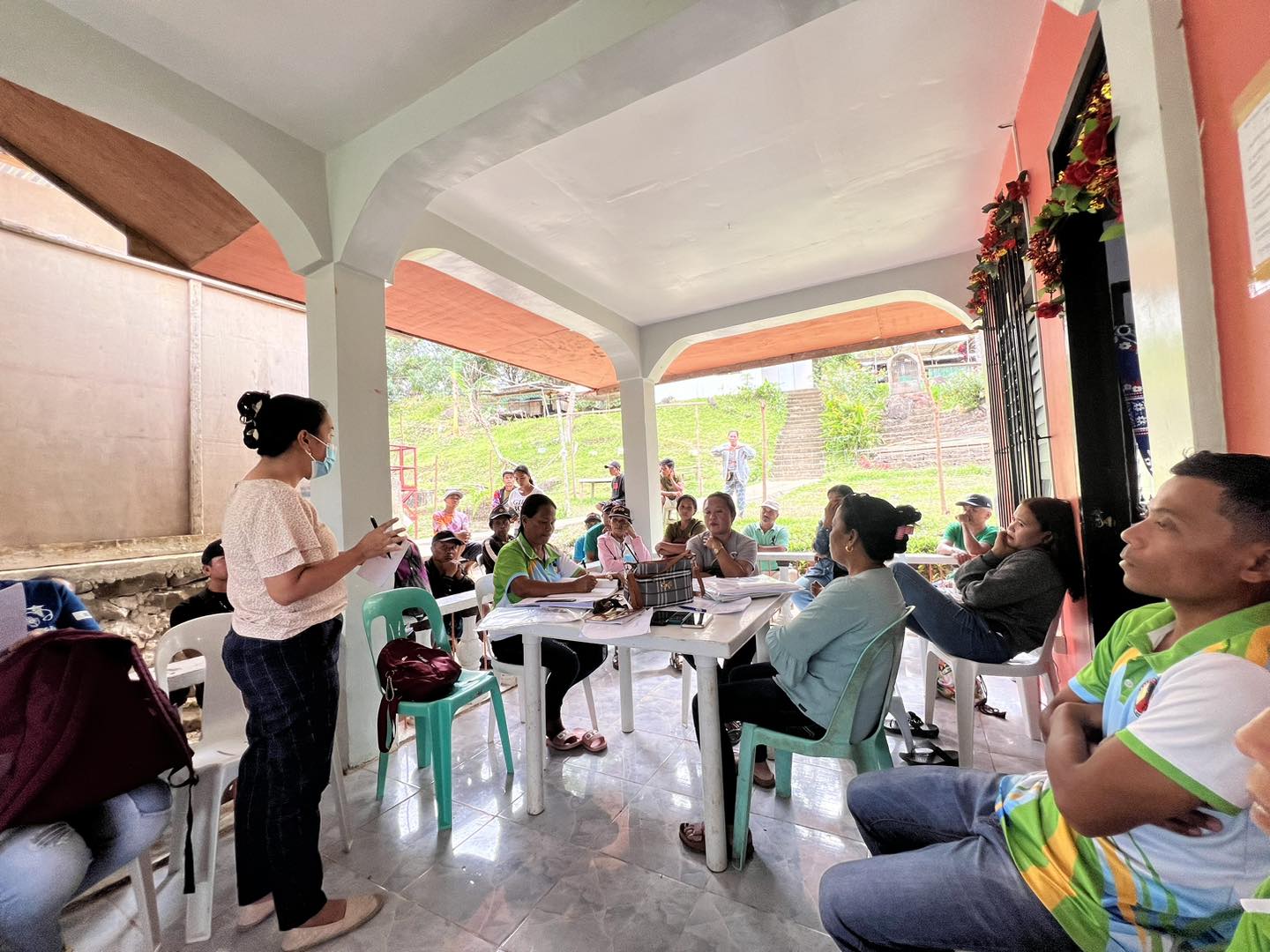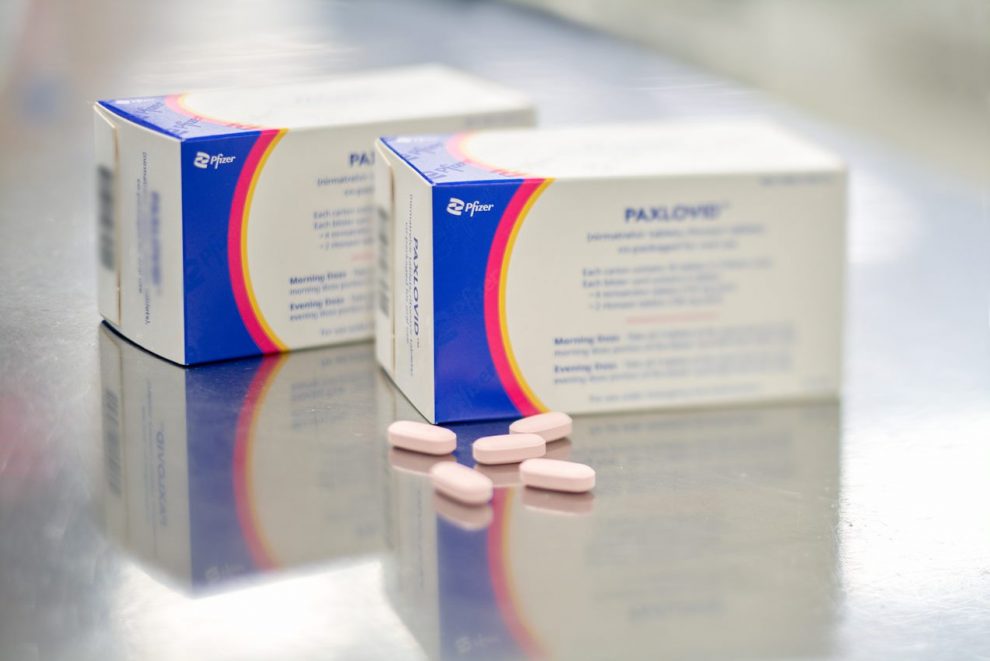Pfizer announced today that the FDA Philippines has granted the Emergency Use Authorization (EUA) for the supply and use of Nirmatrelvir 150 mg / Ritonavir 100 mg (PAXLOVID) Film-Coated Tablets in Philippines. PAXLOVID is indicated for the treatment of COVID-19 in adults who do not require supplemental oxygen and who are at increased risk for progression to severe COVID-19
PAXLOVID is the first oral treatment of its kind; it includes nirmatrelvir, a 3CL protease (also known as Main protease or Mpro) inhibitor that was specifically developed in Pfizer’s laboratories to combat SARS-CoV-2. This oral treatment and should be taken within the first five days of symptomatic infection.
“This milestone in Philippines is an important moment in our continued fight against COVID-19, paving the way for use of PAXLOVID as we address the threat of a new variant of concern, Omicron. We are honored to have been working with the FDA Philippines and want to commend them for their fast-track assessment of PAXLOVID to grant the Emergency Use Authorization” said Edilberto Reyes, Pfizer Philippines Interim Country Manager.
“Whilst vaccination remains to be an effective way to help prevent COVID-19, this oral treatment provides us with another important line of defense – to reduce hospitalizations and help save lives. PAXLOVID has the potential to transform COVID-19 treatment and help lessen the devastating impact of the virus globally.” Mr. Edilberto Reyes said.
FDA Philippines based its decision on positive results from the Phase 2/3 EPIC-HR (Evaluation of Protease Inhibition for COVID-19 in High-Risk Patients) interim analysis, which enrolled non-hospitalised adults with confirmed COVID-19 who were at increased risk of progressing to severe illness. The data showed that PAXLOVID reduced the risk of hospitalization or death by 89% (within three days of symptom onset) and 88% (within five days of symptom onset) compared to placebo, with no deaths observed in the treatment group. Treatment-emergent adverse events were comparable between PAXLOVID (23%) and placebo (24%), most of which were mild in intensity. Treatment-emergent adverse events were comparable between PAXLOVID (23%) and placebo (24%), most of which were mild in intensity. These data were recently published in the New England Journal of Medicine. Additional Phase 2/3 clinical trials are ongoing in adults at standard risk (i.e., low risk of hospitalization or death) of progressing to severe illness, and in those who have been exposed to the virus through household contacts.
About Nirmatrelvir 150 mg / Ritonavir 100 mg (PAXLOVID) Film-Coated Tablets
PAXLOVID is a SARS-CoV-2 main protease (Mpro) inhibitor (also known as SARS-CoV2 3CL protease inhibitor) therapy. It was developed to be administered orally so that it can be prescribed at the first sign of infection or, pending clinical success of the rest of the EPIC development program and subject to regulatory authorization, at first awareness of an exposure – potentially helping patients avoid severe illness (which can lead to hospitalization and death) or avoid disease development following contact with a household member who contracts COVID-19. Nirmatrelvir [PF-07321332], which originated in Pfizer laboratories, is designed to block the activity of the Mpro, an enzyme that the coronavirus needs to replicate. Co-administration with a low dose of ritonavir helps slow the metabolism, or breakdown, of nirmatrelvir in order for it to remain active in the body for longer periods of time at higher concentrations to help combat the virus.
Nirmatrelvir is designed to inhibit viral replication at a stage known as proteolysis, which occurs before viral RNA replication.
Current variants of concern can be resistant to treatments that work by binding to the spike protein found on the surface of the SARS-CoV-2 virus. PAXLOVID, however, works intracellularly by binding to the highly conserved Mpro of the SARS-CoV-2 virus to inhibit viral replication. Nirmatrelvir has shown consistent in vitro antiviral activity against earlier and current variants of concern (i.e., Alpha, Beta, Delta, Gamma, Lambda, Mu, and Omicron).
PAXLOVID is authorized to be administered at a dose of 300 mg (two 150 mg tablets) of nirmatrelvir with one 100 mg tablet of ritonavir, given twice-daily for five days. One carton contains five blister packs of PAXLOVID, as co-packaged nirmatrelvir tablets with ritonavir tablets, providing all required doses for a full five-day treatment course.
Our Commitment to Equitable Access
Pfizer is committed to working toward equitable access to PAXLOVID for all people, aiming to deliver safe and effective antiviral therapeutics as soon as possible and at an affordable price. During the pandemic, Pfizer will offer its oral therapy, pending country approval, through a tiered pricing approach based on the income level of each country to promote equity of access across the globe. High and upper-middle income countries will pay more than lower income countries.
Pfizer will continue to invest to support the manufacturing and distribution of PAXLOVID, including exploring potential contract manufacturing options. The company has initiated bilateral outreach to more than 100 countries around the world and has entered into agreements with multiple countries. Additionally, Pfizer has signed a voluntary license agreement with the Medicines Patent Pool (MPP) for its oral treatment to help expand access, pending country regulatory authorization or approval, in 95 low- and middle-income countries that account for approximately 53% of the world’s population.
About the EPIC Development Program
The EPIC (Evaluation of Protease Inhibition for COVID-19) Phase 2/3 development program for nirmatrelvir; ritonavir consists of three clinical trials spanning a broad spectrum of patients, including adults who have been exposed to the virus through household contacts, as well as adults at both standard risk and high risk of progressing to severe illness.
In July 2021, Pfizer initiated the first of these trials, known as EPIC-HR (Evaluation of Protease Inhibition for COVID-19 in High-Risk Patients), a randomized, double-blind study of non-hospitalized adult patients with COVID-19, who are at high risk of progressing to severe illness. At the recommendation of an independent Data Monitoring Committee and in consultation with the U.S. Food and Drug Administration (FDA), Pfizer ceased further enrollment into the study in early November 2021 due to the overwhelming efficacy demonstrated in results from an interim analysis. Findings from the EPIC-HR final analysis were published online in The New England Journal of Medicine on February 16, 2022
In August 2021, Pfizer began the Phase 2/3 EPIC-SR (Evaluation of Protease Inhibition for COVID-19 in Standard-Risk Patients), to evaluate efficacy and safety in patients with a confirmed diagnosis of SARS-CoV-2 infection who are at standard risk (i.e., low risk of hospitalization or death). Interim data from this study have been reported. Pfizer is currently expanding the population of the ongoing EPIC-SR study by approximately 800 patients and expects to share results later this year.
In September, Pfizer initiated the Phase 2/3 EPIC-PEP (Evaluation of Protease Inhibition for COVID-19 in Post-Exposure Prophylaxis) to evaluate efficacy and safety in adults exposed to SARS-CoV-2 by a household member. This trial is also ongoing, and Pfizer expects to share results later this year.
For more information on the EPIC Phase 2/3 clinical trials for PAXLOVID, visit clinicaltrials.gov
About the EPIC-HR Final Results
In the final analysis of the primary endpoint from all patients enrolled in EPIC-HR, an 89% reduction in COVID-19-related hospitalization or death from any cause compared to placebo in patients treated within three days of symptom onset was observed, consistent with the interim analysis. In addition, a consistent safety profile was observed.
0.7% of patients who received PAXLOVID were hospitalized through Day 28 following randomization (5/697 hospitalized with no deaths), compared to 6.5% of patients who received placebo and were hospitalized or died (44/682 hospitalized with 9 subsequent deaths). The statistical significance of these results was high (p<0.0001). In a secondary endpoint, PAXLOVID reduced the risk of hospitalization or death from any cause by 88% compared to placebo in patients treated within five days of symptom onset; 0.8% of patients who received PAXLOVID were hospitalized or died through Day 28 following randomization (8/1039 hospitalized with no deaths), compared to 6.3% of patients who received placebo (66/1046 hospitalized with 12 subsequent deaths), with high statistical significance (p<0.0001). In the overall study population through Day 34, no deaths were reported in patients who received PAXLOVID as compared to 13 deaths in patients who received placebo.
In the EPIC-HR trial, in a secondary endpoint, SARS-CoV-2 viral load at baseline and Day 5 have been evaluated for 1574 patients. After accounting for baseline viral load, geographic region, and serology status, PAXLOVID reduced viral load by approximately 10-fold relative to placebo when treatment was initiated within three days of symptom onset, indicating robust activity against SARS-CoV-2 and representing the strongest viral load reduction reported to date for an oral COVID-19 agent.
Treatment-emergent adverse events were comparable between PAXLOVID (23%) and placebo (24%), most of which were mild in intensity. Fewer serious adverse events (1.6% vs. 6.6%) and discontinuation of study drug due to adverse events (2.1% vs. 4.2%) were observed in patients dosed with PAXLOVID, compared to placebo, respectively.
All other secondary endpoints for this study, which are available on clinicaltrials.gov (NCT04960202) and EudraCT (2021-002895-38), were not yet available for this review.
About Pfizer: Breakthroughs That Change Patients’ LivesTM
At Pfizer, we apply science and our global resources to bring therapies to people that extend and significantly improve their lives. We strive to set the standard for quality, safety and value in the discovery, development and manufacture of health care products, including innovative medicines and vaccines. Every day, Pfizer colleagues work across developed and emerging markets to advance wellness, prevention, treatments and cures that challenge the most feared diseases of our time. Consistent with our responsibility as one of the world’s premier innovative biopharmaceutical companies, we collaborate with health care providers, governments and local communities to support and expand access to reliable, affordable health care around the world. For more than 170 years, we have worked to make a difference for all who rely on us. We routinely post information that may be important to investors on our website at www.Pfizer.com. In addition, to learn more, please visit us on www.Pfizer.com and follow us on Twitter at @Pfizer and @Pfizer News, LinkedIn, YouTube and like us on Facebook at Facebook.com/Pfizer.












